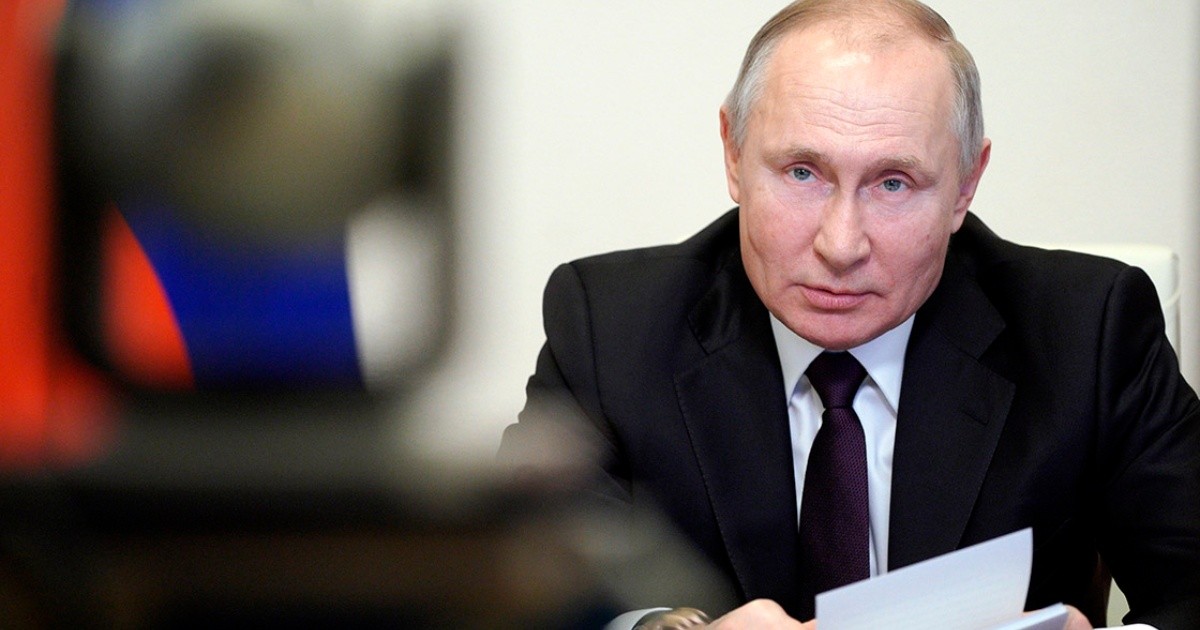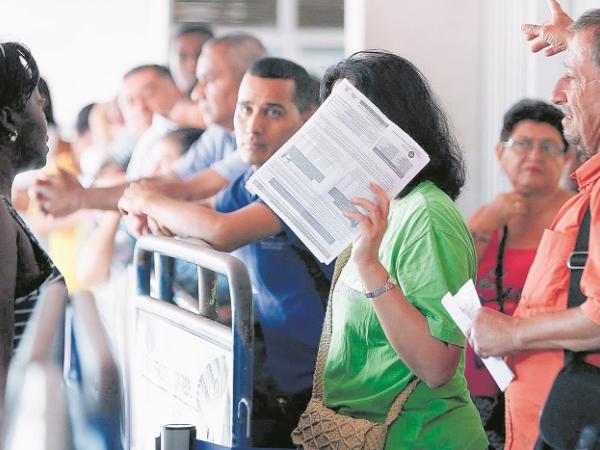“No one has to save me,” says Andriy Atamanyuk, expressing himself in Russian. The 48-year-old Ukrainian is an outspoken critic of President Vladimir Putin, who has argued that Russian-speakers are discriminated against in Ukraine.
“These fables about the language are just a pretext to invade,” fulminates this 48-year-old driving school monitor, who returned to Ukraine in 2015 after having worked 12 years in Moscow.
“There is no discrimination. Putin has no business here. All he can bring is ruin, misery and chaos,” he says.
The Russian president does not see things that way, and makes the language issue the spearhead of his Ukrainian policy.
“It is worrying that at the legislative level the discrimination of the Russian-speaking population who is denied the right … to use their mother tongue will be determined,” Putin told French President Emmanuel Macron last week.
After the annexation of Crimea in 2014, and due to the armed conflict in the east with the pro-Russian separatists supported by Moscow, the Ukrainian language gained ground and became the central element of national unity, in parallel with a decline in Russian.
Some bilingual Ukrainians even chose not to speak Russian in their daily lives.
But the east and south of the country remain largely Russophone. Even on the streets of Kiev, Russian rules even though Ukrainian is legally the only state language.
In an effort of “Ukrainization”, the government has imposed Ukrainian since 2021 in shops, restaurants and other services as the language of communication.
Since January, posts in another language must be accompanied by versions in Ukrainian. There are exceptions provided for English, but not for Russian.
The text is also criticized by the NGO Human Rights Watch, which sees in it a lack of balance that “raises concern.”
But there is no trace of “genocide” of Russophones, as President Putin has repeatedly denounced.
“Lie and Fiction”
The millionaire and patron Evgueni Utkin, 63, is categorical.
Born in the south of Russia, he studied in Moscow and began developing projects in Kiev in 1982, where he settled in 2008. He affirms that he has never suffered the slightest discrimination.
“I feel like a citizen of Ukraine. But I am profoundly Russian, and Russian is my mother tongue,” he says, calling Moscow’s speech a “lie and fiction.”
For the Ukrainian historian Yaroslav Gritsak, Russian rhetoric on the linguistic issue aims to justify Russian aggression, given that the real “difference between Ukraine and Russia is political.”
In an essay “on the historical unity of Russians and Ukrainians” published this summer, Putin defends the idea that the two peoples are really but one and that the divisions have been instigated by the West.
“The path of forced assimilation, the formation of an ethnically pure Ukrainian state, aggressive towards Russia, is comparable to the use of weapons of mass destruction against us,” the Russian president wrote.
For Anne Applebaum, Pulitzer Prize winner and specialist on communism, this speech by Putin reflects his imperialist ambitions.
“The Soviet Union was a Russophone empire and sometimes Putin seems to dream of recreating a replica of that empire on the borders of the former USSR,” he says.
Ukrainian author Andrei Kurkov, one of the most popular Russian-language writers in Europe, believes that his country must pursue a “firm” language policy.
Faced with the threat from Moscow, “it is immoral” to promote Russian in Ukraine, he says in an interview with AFP.








